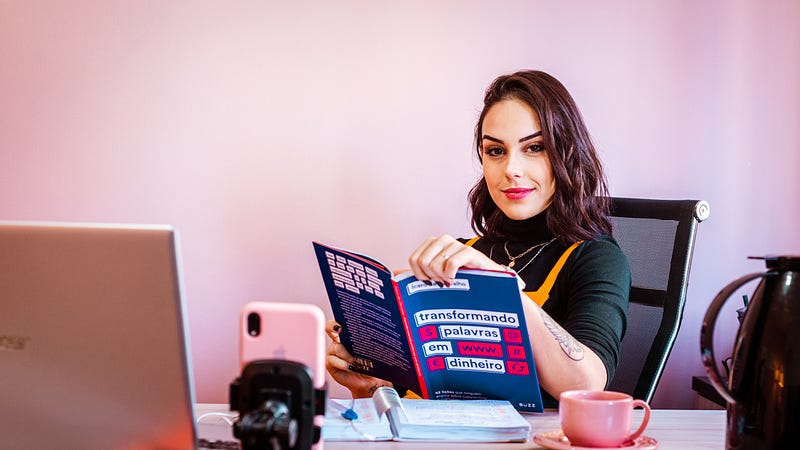What it Takes to Display Your Book in Bookstores in India
An insider’s take on the secrets of the Indian publishing world no one else will tell you

An insider’s take on the secrets of the Indian publishing world no one else will tell you
I have a day job as an assistant professor of civil engineering at a reputed university in India. However, due to my concerted efforts online, most of my colleagues and students know that I am an author with three published books.
When we meet at social gatherings, some people tell me that they are impressed with the work I’m doing and would love to read my books.
I smile and tell them they can get a copy from me or order one from Amazon.
Understandably, not many people are familiar with ordering stuff online. So, they tell me they will get one from a bookstore.
My smile freezes, not sure how to continue the conversation. Hesitatingly, I tell them my books aren’t available in the bookstores in Silchar (the small town in India I currently live in).
“Arrey Kolkata se le lenge. Waha pe to available hoga na?” We’ll get a copy from a bookstore in Kolkata. No doubt, it will be available there.
“Well, no,” I tell them. “You have to get a copy from me or from Amazon.”
They look at me for a moment, confused. How can a book not be available in a bookstore, that too in a big city like Kolkata?
Having a book in bookstores demands investment
Here is something most people don’t know: If an author doesn’t invest a significant amount of money in marketing and distribution, it is impossible for them to get their books in bookstores (especially in a country like India).
That can’t be possible, you think to yourself. The shelves in bookstores are always close-to-bursting full of books.
Indeed, they are. But, let me ask you one question: What is the most popular bookstore in India you can name?
Chances are, your answer to the question above was Crossword. It is obvious because they are the largest retail bookstore chain in the country. They have stores in 31 cities and all major airports. It is not surprising that you have heard of them.
But do you know what is surprising?
Crossword Bookstores charge an upfront fee of INR 17 lakhs ($22,500) for a period of 5 months to display a book in 10 stores in major cities of India.
It doesn’t take a genius to work out that it would be almost impossible to recover that huge an amount from book sales alone.
Sale-or-Return Model
Crossword also has a system of taking up books on a sale-or-return basis. This means you pay a listing fee of INR 10000 per month ($135), and they will list your books in their stores with one condition: you will have to buy them back if there are no sales after a previously decided-upon period).
This ensures that-
- Your book will be listed in the store and not displayed.
- The store will have your book in their catalogue and will be sold ONLY when a customer walks up to the desk and specifically asks for your book.
Profit margin in SOR models
If this sounds dismal, the real bad news is this: the profit margin in SOR models is 45–50%.
- This means the store will keep 50% of the retail price as their profit.
- Most books with a retail price of INR 300 come with a printing cost of about INR 160–170 unless printed in bulk (which, again, demands huge investment on the author’s part).
- In that case, if the store keeps 50%, the author will be selling the book at a loss of INR 20 per copy.
Independent bookstores
I told you how the scene is like in bookstore chains, but what about independent bookstores? I live in a small town (Silchar in Assam) that hardly has one or two bookstores that sell English books. However, back in my hometown (Guwahati, Assam), there is a thriving market of bookstores and readers.
I approached a couple of stores, and they straight up asked for a profit of 40%. I explained to the owners that I would actually be losing money if I agreed to that margin. I also appealed to their sense of belonging by saying they ought to support authors from the state of Assam. To my good fortune, two bookstore-owners agreed to a profit margin of 30% and kept ten copies each of my book in stock (on display as well).
Within a few months, I got calls from both the owners informing me that they needed ten more copies as the existing copies were sold out. I was elated.
When I went to visit them, they told me that most readers are enthusiastic about buying books from authors of the state and supporting local talent. This was a huge surprise to me.
Look for bookstores in your hometown
If you’re looking to make your book available in bookstores, look for the independent ones in your hometown. The owners are not obligated to stock your books, but if you are able to convince them to believe in you, there is a chance they might.
If they do, agree on a profit margin that leads to a win-win situation for both parties. If not in bookstore chains, at least we authors can target the indie bookstores to support us and help us grow.
The bottom line
If you know an author in real life, don’t ask them if you can buy their book from book stores. It hurts. For most authors who have self-published their books, it is difficult to get their titles listed in bookstores unless they invest lakhs of rupees.
Instead, buy their books from Amazon. Even if the profit margin is less, at least the author doesn’t have to sell their book at a loss.
Read more about my writing and publishing journey here-


